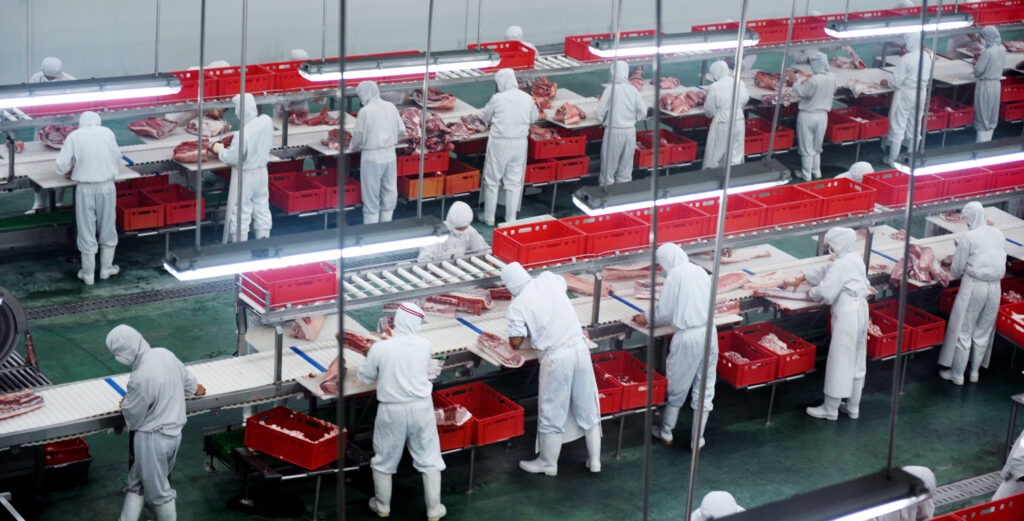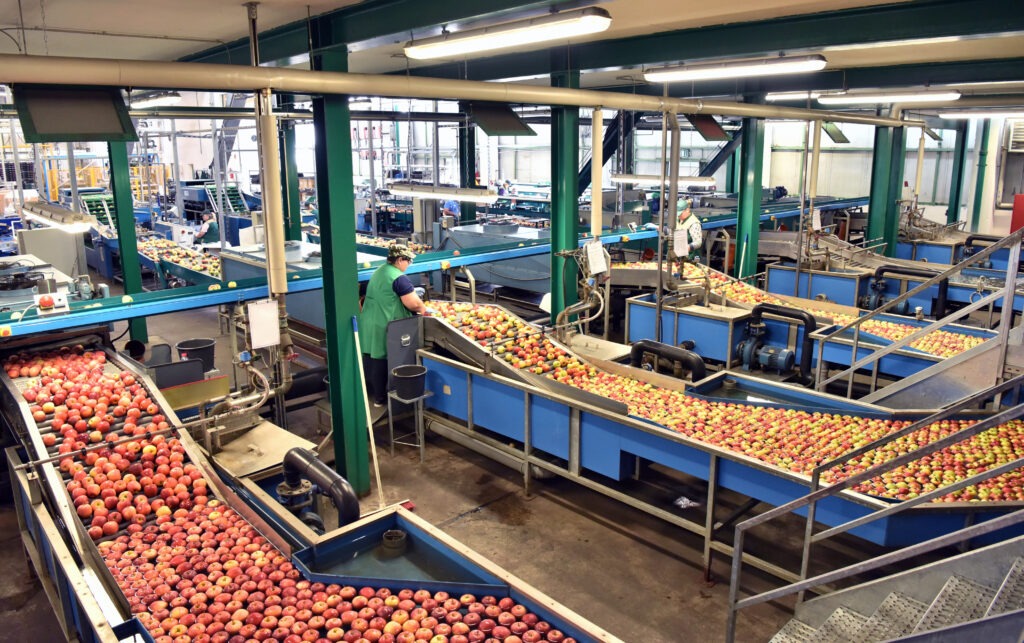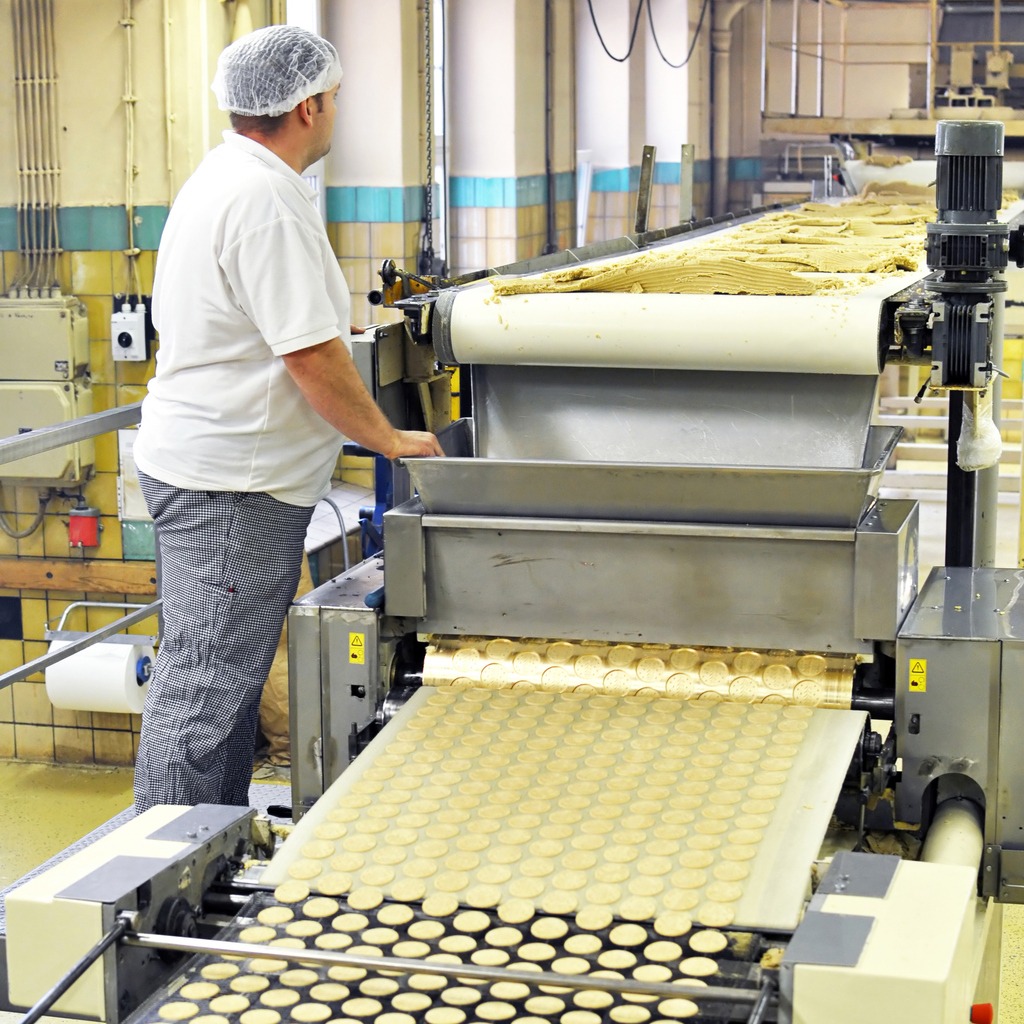Designing production processes with temporary work
Personalized nutrition is extremely important all over the world right now. More and more people don't want food "off the shelf", but snacks and meals that are precisely tailored to their health, genes or lifestyle goals. Sound like things that are miles in the future? It's a long way off and already a reality. The only problem is that these customized production processes are quite complex and require a high degree of flexibility. And this is exactly where temporary staffing comes into play - like the secret ingredient in the perfect recipe. Temporary skilled workers in production, often from Eastern Europe, help companies to overcome spontaneous bottlenecks and respond to individual orders at lightning speed. But how exactly does it all work on a day-to-day basis in the production halls? Let's take a look at the world of production processes: High-tech, hygiene regulations and millet bars made to order.
Table of contents
- Designing production processes with temporary work
- What is personalized nutrition - and why is everyone suddenly talking about it?
- How does personalized nutrition influence production processes?
- How do qualified temporary workers ensure hygiene and efficiency in a food production facility?
- What are the advantages of temporary work in personalized nutrition production?
- What are the challenges of integrating temporary workers?
- How does flexible personnel planning work in the food industry through temporary employment?
- How does the optimization of production processes through temporary workers work?
- What does efficient production planning with temporary workers look like?
- How can you take advantage of the cost benefits and expertise of personnel from Eastern Europe?
- How can Temporary Employment International support personalized nutrition production?
- FAQ - Frequently asked questions about personalized nutrition and temporary work
Estimated reading time: 13 minutes
What is personalized nutrition - and why is everyone suddenly talking about it?
Imagine that your food knows exactly what you are missing - and delivers it right away. This is exactly what the concept of personalized nutrition is all about. Instead of run-of-the-mill tips such as "more vegetables, less sugar", you get tailor-made vitamin bombs, diet plans that really suit you or functional snacks that celebrate your genes. This is the new reality in the chiller cabinet.
More and more people don't want just any food, but your food. Individual, healthy, clever - and delicious too, please. For the food industry, this means: jackpot! But also a lot of stress. Because suddenly it's no longer about mass production, but about mini-batches, special requests and constantly changing ingredient lists. That's where production comes into play. If you want to keep up, you not only have to be creative, but also incredibly flexible. And how does that work? The answer lies in the food production process - the right production processes have to be used.
How does personalized nutrition influence production processes?
Direct production sector personalized nutritional products presents companies with new challenges. Unlike mass-produced products, production lines must be able to be changed over quickly in order to realize different ingredient combinations or dosages for each customer order. This requires flexible production processes and often the use of modern technology. For example Automated mixing plants and AI-supported systems help to adapt recipes efficiently. However, a survey shows that so far only 9 % of companies in the DACH region use AI-based solutions in production, here read more.
This means that in many companies, experienced specialists are still the key to ensuring the necessary flexibility. Temporary workers can provide support here - they allow additional people to be brought in for certain tasks depending on the order situation, without having long-term staff surpluses.
How do qualified temporary workers ensure hygiene and efficiency in a food production facility?
Despite technological advances, human labor cannot be left out, especially in quality control and fine-tuning in the production process. Employees have to carry out sensory tests, monitor machines or react flexibly to unforeseen problems. Trained workers are essential, especially in personalized nutrition, where precision is crucial. Companies are therefore faced with the task of achieving production optimization through a combination of technology and qualified personnel - a balance that can be facilitated by clever personnel strategies such as temporary work.

What are the advantages of temporary work in personalized nutrition production?
The use of temporary workers in production for personalized nutrition brings a number of advantages for companies in the food industry. These relate to both the flexibility of personnel planning and production optimization:
- Rapid adjustment of production capacity: Companies can react to market changes at short notice and cover production peaks without any problems.
- Cost savings: Temporary workers only generate costs when they are actually needed, which reduces fixed costs.
- Expertise on demand: Skilled workers from Eastern Europe often bring with them specialized knowledge that is difficult to find in the domestic market.
- Relief for the core workforce: The permanent team is relieved by temporary support, which reduces overtime and downtime.
- Increase innovative capacity: Temporary workers contribute new ideas and experience and thus promote innovative processes within production.
Take advantage of the benefits of temporary work to make your personalized food production efficient, flexible and future-proof!
What are the challenges of integrating temporary workers?
Despite the numerous advantages, the use of temporary workers in production also brings challenges. Companies should be aware of these and take appropriate measures to ensure smooth integration:
- Communication barriers: Different languages and cultures can lead to misunderstandings. Companies should therefore attach importance to careful induction.
- Quality assurance: The high quality and hygiene standards in food production must also be strictly adhered to by temporary workers. Intensive training and regular checks are required here.
- Knowledge management: Temporary workers gather important know-how that is often lost after the end of their assignment. Companies should therefore establish processes for documenting and passing on knowledge.
- Acceptance of permanent staff: Good communication and transparency are crucial to ensure the acceptance of temporary workers within the existing workforce.
- Legal and administrative challenges: The legal requirements relating to temporary employment, particularly the employment of foreign skilled workers, require special knowledge and administrative capacities.
By actively tackling these challenges, you can successfully integrate temporary workers and sustainably strengthen your personalized nutrition production.
How does flexible personnel planning work in the food industry through temporary employment?
The production and production processes of personalized nutrition can sometimes go wild: Everything goes according to plan on Monday, and on Tuesday a TikTok hype causes a mass rush for gluten-free spirulina bars with a mango and chili kick. If you don't have a flexible staff schedule, you can quickly find yourself in chaos. The solution? Temporary work.
Temporary workers are heroes when marketing campaigns explode or the whole world suddenly demands lactose-free protein pasta. Instead of dragging a huge permanent workforce through the year (which twiddles its thumbs in quiet times), clever companies call in support on a selective basis - exactly when things are on fire.
And the best thing is that many of these temporary workers have all the experience. Whether packaging, machine operation or quality checks - they know the rules, the hygiene regulations and the pace of the production line. Services such as Zeitarbeit International do not supply beginners, but professionals on call. And if it has to be high-end? No problem. Nutrition technologists and quality experts can also be brought on board on a temporary basis - without any long-term commitment.
The result: less stress, less overtime, faster time to market - and a team that is flexible.
How does the optimization of production processes through temporary workers work?
Let's imagine a medium-sized company that offers protein bars and shakes that are customized for each customer. At the beginning of the year, business is booming due to New Year's resolutions - a typical spike in the personalized nutrition industry. This company decided to use temporary workers to cope with the sudden increase in demand. Production processes were optimized by hiring additional Temporary employees for mixing the ingredients and packaging.
The result: production volumes were almost doubled in a very short space of time without any loss of quality. As soon as the rush subsided, the temporary workers were let go in accordance with their contracts, allowing the company to return to a cost-efficient permanent workforce.
What does efficient production planning with temporary workers look like?
This practical example shows how efficient production planning can be achieved with temporary workers. The campaign was supported by technology: automated dosing systems and software that converts orders into production orders helped the additional workers to be productive immediately. In this context, it is also interesting to look at the industry as a whole: although automation is advancing (the automation industry in Germany generated sales of around 63.6 billion euros in 2023, according to Statista), flexible employees are a decisive competitive factor.
Man and machine work hand in hand to implement personalized nutrition economically. The Integration of temporary work in food production makes it possible to introduce new technologies such as AI or robotics and, at the same time, to have sufficiently trained staff on hand to use these technologies efficiently. In this way, production optimization and innovation capability are achieved simultaneously.

How can you take advantage of the cost benefits and expertise of personnel from Eastern Europe?
Skilled workers from Eastern Europe offer particular potential for personalized food production. Temporary work in Eastern Europe - i.e. the placement of temporary workers from Eastern European countries - enables German food manufacturers to recruit qualified personnel and save costs in the process. In many Eastern European countries, there is a well-trained workforce in the food industry. the food industry,such as experienced production employees, plant operators or food engineers. These Skilled workers from Eastern Europe are characterized by a high work ethic and practical knowledge. The cost advantage results from the fact that, compared to Western Europe, the labor market is often lower wage level. Companies can thus reduce their personnel costs without having to compromise on quality.
Integration into the team
However, it is important that temporary workers from Eastern Europe are well integrated into the team. Language skills and induction play a role - reputable temporary employment agencies provide support here, for example through bilingual foremen or preparatory courses. With the right approach, you benefit twice over: firstly through cost savings, and secondly through access to an expanded talent pool with some specialized skills.
Particularly when new processes are introduced in personalized nutrition (such as the operation of a special filling system or the implementation of new hygiene regulations), a specialist from PolandSlovakia or Romania bring precisely the expertise that is lacking locally. Many companies report that personnel from Eastern Europe has helped them to overcome production bottlenecks and even train internal employees through knowledge sharing. It is therefore worth considering this option as part of your HR strategy in order to remain competitive in a dynamic market.
Conclusion
Personalized nutrition requires agile production and a well-planned personnel strategy. Flexible temporary staffing in the food industry offers the opportunity to respond quickly to individual customer requirements without driving up costs.
Temporary workers, especially skilled workers from Eastern Europe, can effectively support production processes - from covering seasonal peaks to bringing in specialist know-how. The decisive factor is a well thought-out interplay between technology and people: those who cleverly combine automation and temporary work increase efficiency and remain innovative. Companies that use these approaches secure clear competitive advantages in the growth market of personalized nutrition.
How can Temporary Employment International support personalized nutrition production?
You want to serve personalized food, but your production planning is not yet fully developed? No problem - Zeitarbeit International is your reliable partner when it comes to personnel strategy. The team will provide you with exactly the right people from Eastern Europe - from nimble packing production assistants to experienced specialists with hygiene training.
What does that mean for you? No nerve-wracking searches, no "Who can work today?", but: Zack - staff there, ready for action, off you go! Regardless of whether you are just launching a new line of gene-based muesli bars or are once again overrun by a wave of kale - Zeitarbeit International delivers exactly the personnel you need. Precise, stress-free, well-trained.
And the best thing? You don't have to worry about all the paperwork not care. Applicant selection? Check. Travel? Check. Contracts, permits, all the bureaucratic madness? Check, check, check. You simply concentrate on your core business - we deliver the rest like a good delivery service: hot, fast and reliable.
If you are asking yourself: "How do I strike the optimum balance between a permanent team and temporary work?" - the professionals at Zeitarbeit International can help you with advice, action and no technical jargon. So: Don't ponder for long - give us a call at +49 172 7477707 or simply write to us.
Together we will make your production line fit for the next food trend - and your competitiveness at the same time!
Similar topics

FAQ - Frequently asked questions about personalized nutrition and temporary work
Imagine your diet is as individual as your fingerprint - that's personalized nutrition! Instead of following general dietary recommendations, your personal mix of genetics, microbiome, metabolism and lifestyle is taken into account. The goal? A diet that not only fills you up, but also supports you on your way to better health and well-being.
With DNA-based nutrition genetic information analyzedto create individual nutritional recommendations. By analyzing your genes, you learn how your body processes certain nutrients. The goal? A diet that is precisely tailored to your genetic needs to optimize your health and reduce the risk of certain diseases.
Personalized nutrition can help improve your health, reduce the risk of chronic disease and improve your overall well-being. By addressing specific nutritional needs, it allows you to achieve your personal health goals more effectively and quickly.
The microbiome - your own personal community of trillions of microorganisms in the gut - plays a major role when it comes to digestion and metabolism. If you take a closer look at this troupe, it can provide exciting clues as to how you can tailor your diet to your inner micro-team and give your health a little upgrade in the process.
Genetic tests can give you a glimpse into your genetic cookbook - exciting, but to be taken with a grain of salt. Not every DNA note provides clear recipe instructions, so you should always consider all factors and don't forget other ingredients such as lifestyle and the environment.